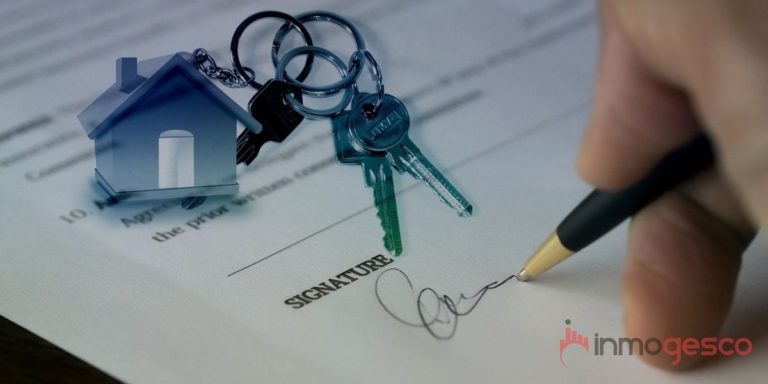Most p rospective purchasers go through estate agents, either online or directly in their offices. But there are other ways. The Crazy Guy has bought several properties in Spain over the last two decades. Here, he offers advice based on his experience.
rospective purchasers go through estate agents, either online or directly in their offices. But there are other ways. The Crazy Guy has bought several properties in Spain over the last two decades. Here, he offers advice based on his experience.
I’ve bought five houses in Spain over the last twenty years and have sold three. As a result, I’ve gathered some know-how and learned from my mistakes. There are various ways to buy a house. Here are my ideas.
Estate agents (agencias inmobiliarias)
Buying via an estate agent is the normal way to purchase property, but it’s the most expensive for the vendor, who must pay a hefty commission (typically 5% or more) and possibly for the purchaser also, as vendors are less inclined to bargain. Some estate agents try to claim a finder’s fee from the buyers. I would always refuse point blank. The estate agent is working for the vendor not the buyer.
We bought our first property in Spain, in Ronda (Málaga), in 2001, via an estate agent, Unicasa (now gone bust).
Normally ultra-cautious at home in the UK, we agreed a deal to buy Piso Blanco within 30 minutes of viewing it (in our defence we had viewed umpteen properties in the preceding 12 months and knew straightaway that this small apartment in a comunidad with swimming pool in the up-and-coming Barrio San Francisco was perfect for our needs – a bolthole from our busy lives in England and also a potential holiday rental).
We did everything wrong. We didn’t get a survey, we used the estate agent’s recommended lawyer and opened an account at their recommended bank, Unicaja. All the advice said, don’t do any of those things. We did, however, and it was no problem - the lawyer was fine and we had an account with Unicaja for 20 years (until they got too big for their boots and started to mistreat their clients and I closed the account).
We got great value from Piso Blanco. Two or three family visits a year plus good lettings when we weren’t using it.
When I sold it after 18 years, I even made a small profit. No estate agents were involved – it was a private word-of-mouth deal.
We bought our second property two years later. I found the house myself and spoke to the vendor direct, but he insisted on using an estate agent– I don’t know why, because it will have cost him more, but it was his choice. That estate agency, Interrealty, also went bust.
This time we were a bit more streetwise. We found our own legal representative, a procurador, similar to a conveyancing solicitor. He was much cheaper and more diligent than many a lawyer.
We didn’t bother with a survey, as we could see with our own eyes that the place was falling down. I exaggerate slightly, but Casa Blanca needed a lot of work, which I mostly did myself over the next couple of years with help from friends and family. Take a bow Alan, Tom and Johnny, Amy and Jeryl.
I sold Casa Blanca after five years and made a decent profit. I used an estate agent, A & B Inmobiliaria in Ronda. The fee included the legal work. B has since retired, but A is now Emme Inmobiliaria.
The third house, bought by my then girlfriend Maud in 2004, was also via an estate agent, the aforementioned A & B Inmobiliaria. El Rincón was small, beautifully formed, but needed a lot of work, which I threw myself into enthusiastically. I was retired by then so had the time.
After my relationship with Maud ended, the house went up for sale. I sold it on Maud’s behalf by word of mouth. No estate agent involved. That was in 2010. We went to the notary on the same day that Frank Lampard’s spectacular goal for England against Germany in the World Cup in South Africa was inexplicably disallowed. (No VAR back then).
House number four is our current home. We spotted it on the website of Olvera Properties. We fell in love with Villa Indiana at first sight and soon agreed a deal with the English owners who were moving back to the UK. The estate agent, Thom, was excellent, very attentive to us as purchasers also. We chose not to use a lawyer (I felt confident after three previous property purchases that we did not need one. As it turned out, the vendor’s lawyer was also helpful to us for no charge).
Housefinders
 There are companies that offer a house-finding service. In this case they are working for you, the prospective purchaser, so it’s right that they should collect a fee from you if they find you somewhere to buy. Their commission is similar to that charged to property vendors.
There are companies that offer a house-finding service. In this case they are working for you, the prospective purchaser, so it’s right that they should collect a fee from you if they find you somewhere to buy. Their commission is similar to that charged to property vendors.
Corredores
Literally “runners”, these are local folk who have a portfolio of properties for sale, many of which are unknown to estate agents. The Spanish are very suspicious of estate agents (their reputation is on a par with lawyers, second-hand car salesmen and timeshare sellers) so local folk will not work with them. They are happy to work with corredores, however, and to pay them between two and three per cent of the sale price. The corredor will expect a similar amount from the buyers.
Despite this charge to the buyer, it usually works out cheaper through this system, as the vendor is more likely to lower his sale price because he is not using an expensive estate agent.
When we were looking for our first property back in 2000/2001, we were shown umpteen houses by corredores in Ronda, Arriate, Benaojan and Montejaque. Fascinating!
How do you find a corredor?
Simply go into the busiest bar in the town or village you have chosen and ask if there are any houses for sale. By the time you’re halfway down your first caña, there will be a local guy standing beside you, jangling keys from his belt and offering to show you a range of properties.
This system works on trust and a handshake.
I know several professional people who worked as corredores in their younger days, including my bank manager, Carlos, and two guiri hoteliers, Iain and Andy. The latter, recently retired from the hospitality industry, is still active, I believe. Another friend of mine, Pablo, does it too. He’s long retired and sees this as a way of topping up his pension.
Private sales
 You see quite a lot of handwritten se vende signs on properties, with a phone number. If you speak Spanish or have a friend that does, give the number a call.
You see quite a lot of handwritten se vende signs on properties, with a phone number. If you speak Spanish or have a friend that does, give the number a call.
That’s how I found my fifth house.
I’d just viewed a house in Montejaque (Málaga) that I’d discovered by word-of-mouth when I spotted a sign on the house next door. “That’s Armando’s house,” said my companion.
“You mean Armando, mi amigo, del bar?”
I went straight to the bar, spoke to Armando who was about to close for the siesta, and he agreed to show me the house there and then. It was his family home, his parents were long deceased and the house was now owned by him and his three siblings who all live in the village.
Long story short, I bought the house, which I named Casa Real in their honour (their surname is Real).
A private sale, no lawyers involved, just the notary to legalise everything.
That’s the way to do it.
Word-of-mouth
This tends to happen by chance, although you can try to engineer a word-of-mouth situation by asking in a bar or at the tourist office. Or by talking to other foreigners already living in the town or village. Nowadays you can also use social media, eg Facebook or Twitter.
I remember back in 2001, when we were on a 'recce', my then wife, Jeryl, and I asked the landlord, Juan, in the now defunct Bar Alemán in Montejaque, if he knew of any houses for sale.
“Yes my mother’s.”
“Can we view it?”
“Sí. Next week?”
“No it has to be today. We fly home to England tomorrow.”
“Oh, that’s a bit tricky.”
“Why?”
“She doesn’t know yet that her house is for sale! I have to ask her if it’s OK”
Well, we got to see the house and liked it but took no decision at that point. However, when we returned a couple of months later, the house had been sold to a retired British couple, Philip and Sandra, who were later to become good friends of ours.
So, the clear message is: Strike while the iron’s hot!
No matter, later in the year we found Piso Blanco in Ronda, as referenced above.
***
So, dear reader, these are my recommendations. Most transactions still occur via estate agents, but the other methods are also worth considering.
Happy househunting!
Further reading:
My God, what have we done?
The Story of El Rincón
How We Found Our Dream Home
A Building Project Nears Completion
The Crazy Guy gets his house finished just in time
The Houses That Jack Built
Was It Something I said?
Cheque (sic) Your Spanish Bank Account